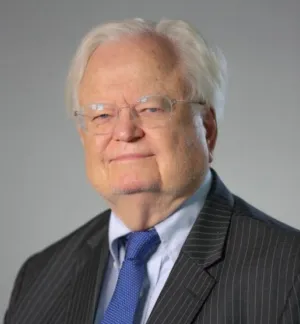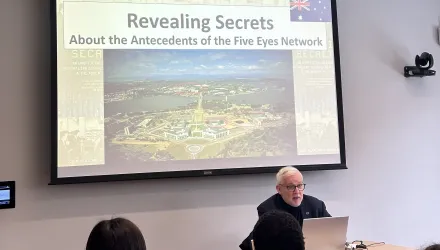Introduction
The U.S. relationship with Israel is in trouble. The cause of the difficulty is not a mere lack of personal chemistry between Barack Obama and Benjamin Netanyahu, nor can it be reduced to a single policy disagreement, such as the debate over the Iran nuclear deal. Rather, serious differences on a long list of policy issues in the Middle East and significant demographic and political changes on both sides are pushing the two countries apart and making it harder for those who care deeply about the relationship—as we, the authors, do—to maintain it.
A growing number of Israelis—perhaps now a majority—support policies likely to exacerbate differences with the United States and increasingly question their ability to count on Washington, and an increasing number of Americans—including some of Israel’s traditional supporters—are concerned about Israel’s domestic and foreign policy paths. Without a deliberate and sustained effort by policymakers and opinion leaders in both countries, the relationship will continue to deteriorate, to the detriment of both countries. Various forms of cooperation between the United States and Israel will continue, as they do with many countries in the region, but the shared strategic perspectives, cultural affinity, mutual admiration, and common democratic values that have underpinned the partnership are increasingly at risk. A split between the United States and Israel is an outcome no one who cares about Israel’s security or America’s values and interests in the Middle East should want.
The sorts of tensions seen during the past few years are, of course, hardly new in the relationship between Washington and Jerusalem; they have existed since Israel’s founding during the administration of Harry Truman. Indeed, having served between us in every administration since Richard Nixon, we have seen up close how the two countries have clashed repeatedly, as leaders on both sides fumed about the policies of the other even while stressing their strong instinctive fidelity to common values and security. But though practically every U.S. administration since Israel’s founding in 1948 has had its “crisis” with Israel— some at least as serious as the Obama administration’s dispute over the Iran nuclear program—the factors that allowed the relationship to bend but not break are no longer as powerful as they once were. Overlooking what is new and different, and complacently assuming the relationship will recover this time as it always has in the past, could prove to be a dangerous mistake.
Recent trends are especially worrisome because a further split between the two countries would be more costly than many on either side want to acknowledge. Israel prides itself on being able to “defend itself by itself,” but the reality is that it continues to rely heavily on the United States for both military and diplomatic support. The United States has provided Israel some $100 billion in defense assistance since the 1979 Camp David peace treaty and regularly expends an enormous amount of political capital at the United Nations and in a wide range of other international organizations to shield Israel from criticism or sanction. Israel can choose to shrug off concerns about growing differences with Washington if it wants, but a decline in support from the United States would only embolden Israel’s enemies and imperil its legitimacy and security.
Despite the arguments of some of Israel’s critics, the United States profits substantially from the relationship as well. Israel is the United States’ closest strategic partner in the world’s most unstable region and shares valuable intelligence with Washington on terrorism, nonproliferation, and regional politics. The United States also derives important military benefits from the partnership, in areas such as military technology, intelligence, joint training and exercises, and cybersecurity.1 And, despite its relatively small population, Israel is the largest regional investor in the United States, the third largest destination for U.S. exports in the Middle East, an important research and development partner for the U.S. high-tech sector, and a source of innovative ideas on confronting twenty-first-century challenges such as renewable energy and water and food security.2
Given the real structural challenges facing the relationship, there is no quick fix for the divisions that have emerged. But repairing and preserving the relationship is possible if the two governments and concerned citizens in both countries appreciate how much is at stake. This Council Special Report examines the ways in which U.S. and Israeli strategic perspectives have diverged in recent years, explores how social, generational, and demographic changes in both countries challenge the relationship, and concludes with six core policy proposals to repair, redefine, and invigorate the partnership:
- Seek to reframe the relationship at a summit in early 2017 at Camp David focused on developing a new strategic vision for a changing Middle East, committing the United States to remain engaged in the region, seriously addressing the Palestinian problem, and institutionalizing an intensive bilateral strategic dialogue.
- Enhance Israel’s sense of security and confidence in the United States by committing to expanded missile defense, anti-tunnel, and cybersecurity cooperation under the terms of the September 2016 longterm defense assistance Memorandum of Understanding (MOU).
- Move beyond the debate about the merits of the Iran nuclear agreement and work together to implement and rigorously enforce it, with a commitment to imposing penalties on Iran for noncompliance and a joint plan for preventing Iran from developing nuclear weapons after the deal’s main restrictions expire.
- Develop detailed common understandings about how to more effectively contain Iranian hegemonic regional designs and take action designed to do so.
- Agree on a set of specific, meaningful measures that Israel will take unilaterally to improve Palestinian daily life and preserve prospects for a two-state solution, linking continued U.S. willingness to refrain from or oppose international action on Israeli settlements or the peace process to Israel’s implementation of such positive, concrete steps.
- Expand economic cooperation focused on bilateral trade, investment, energy, innovation, and Israel’s integration into the region.
Blackwill, Robert and Philip H. Gordon. “Repairing the U.S.-Israel Relationship.” Council on Foreign Relations Press, November 2016
The full text of this publication is available via Council on Foreign Relations Press.





